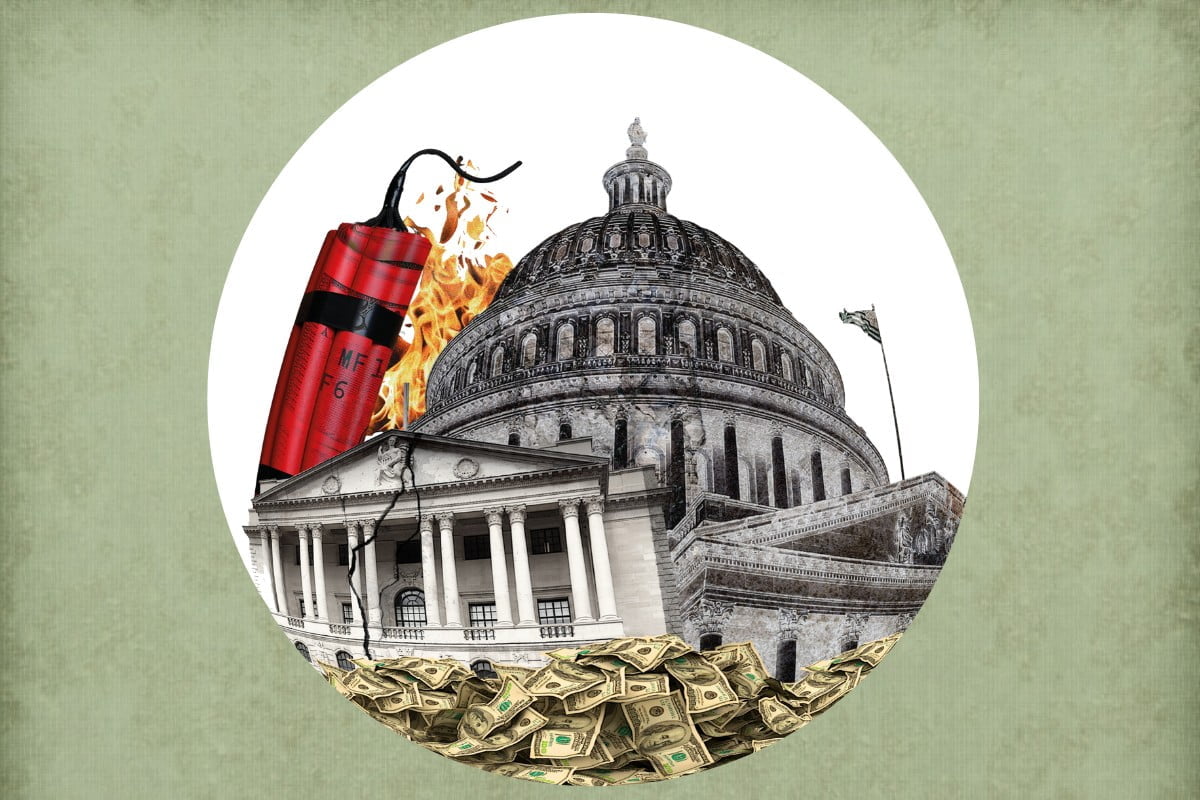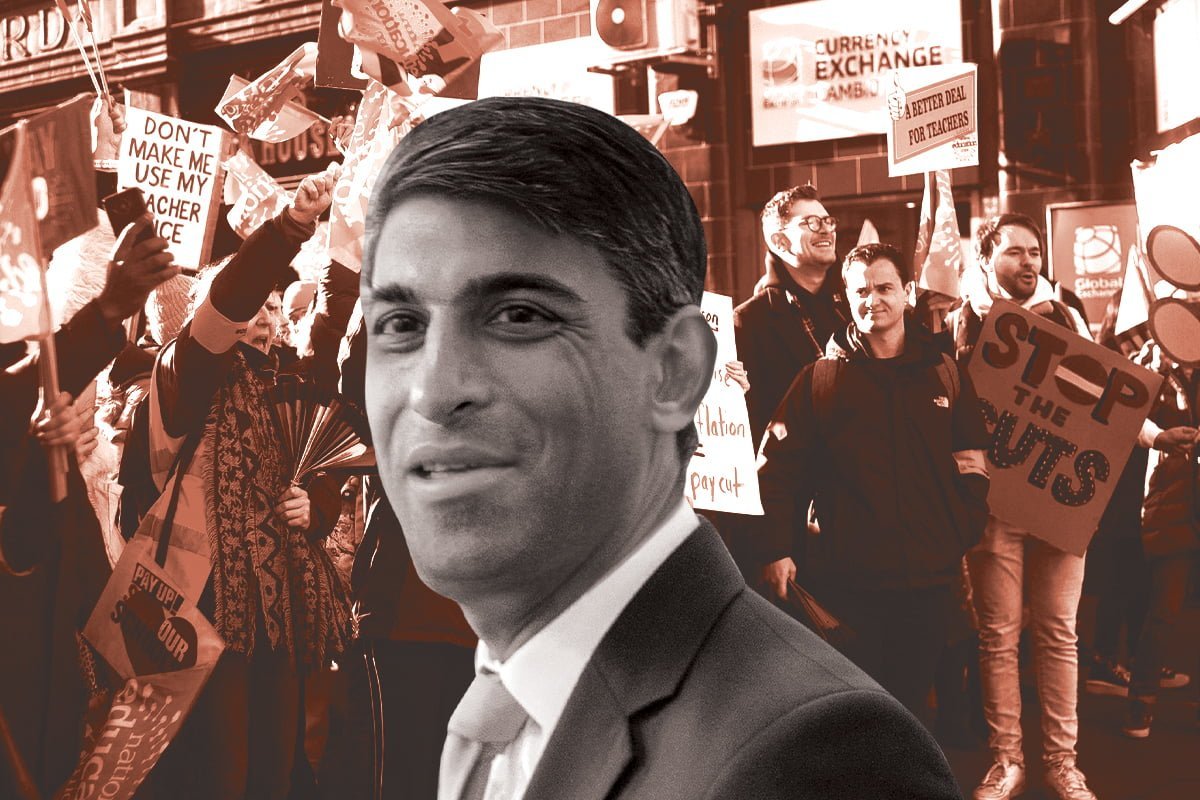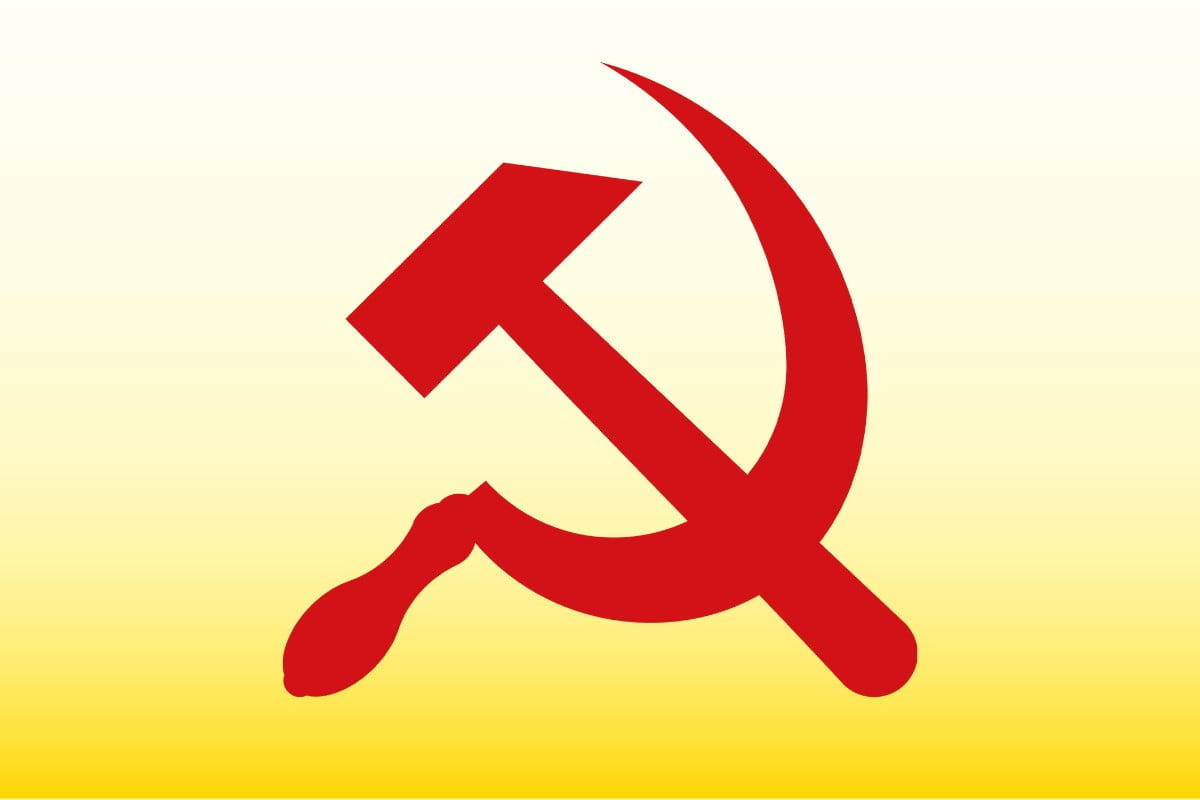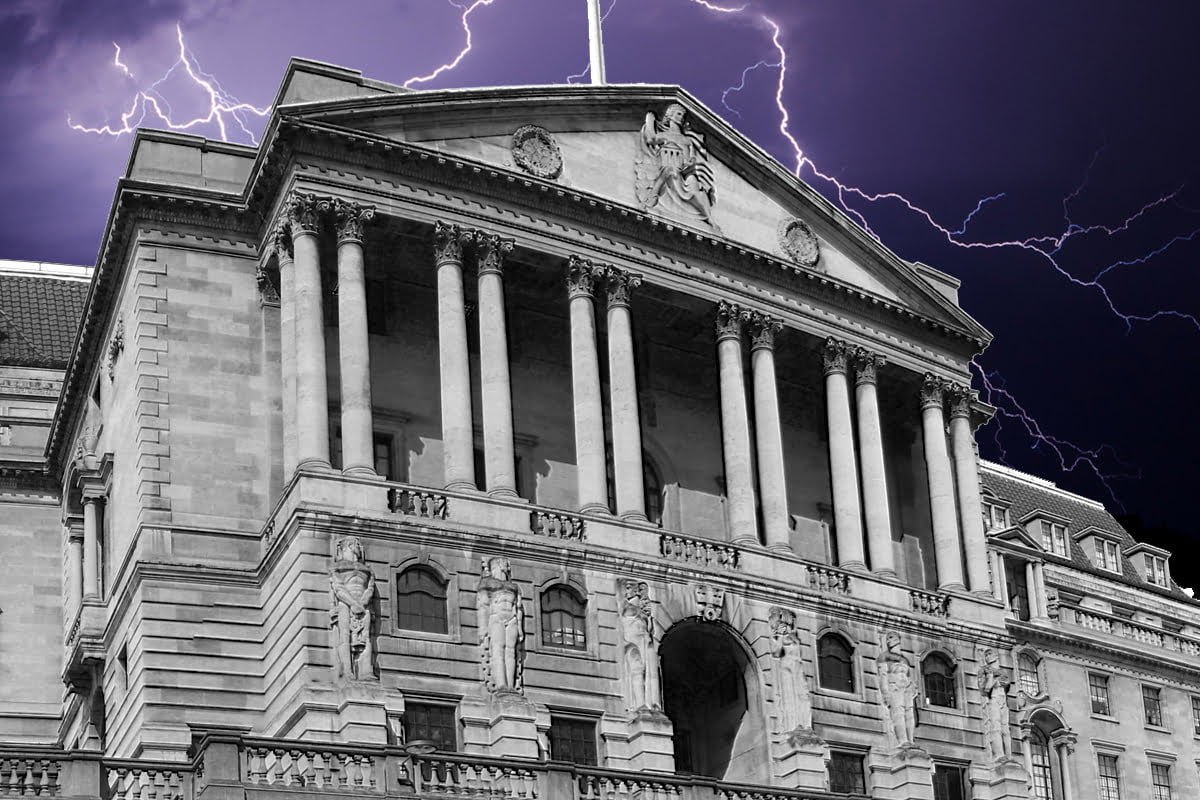“Central banks’ battle with inflation enters new phase of ‘pain’.”
This recent headline summarises the position of the Financial Times – a bourgeois mouthpiece normally known more for its seriousness and sobriety than its sadism.
But the FT aren’t alone in predicting anguish and agony. “Bringing down high prices is going to hurt…a lot,” states leading liberal journal the Economist.
Other capitalist commentators seem to be veritably relishing the prospect.
“The next leg of the improvement in the inflation numbers is going to be harder,” said Carl Riccadonna, chief US economist at BNP Paribas. “It requires more pain, and that pain likely involves a recession in the back half of the year.”
Panic

These assessments all came on the back of the latest announcements concerning inflation and interest rates.
Having initially been sanguine when the spectre of inflation reemerged a couple of years ago, the ruling class is now panicking, as curbing price rises proves to be trickier than expected.
Although headline inflation figures are falling in America and Europe, core inflation – that which remains when particularly volatile items like food, fuel, and energy are stripped away – remains elevated.
For the US, core inflation has been stuck at around 4.7% for the past six months. In the eurozone, the equivalent number is about 5%. In May, both economies registered a rate of 5.3%.
Britain, meanwhile, is a world leader – but not in anything to be proud of. Official estimates for May, published last week, showed CPI inflation running at 8.7%, the same as the previous month. Even more worryingly, UK core inflation jumped from 6.8% to 7.1%.
Slump
For the ruling class and the working class alike, these figures are alarming. They reveal that inflation has become entrenched, and is clearly not ‘transient’ or ‘temporary’, as bourgeois economists were hubristically asserting back in 2021.
Worse still, stubbornly-high prices demonstrate how impotent central bankers are when it comes to vanquishing the menace of inflation.
The only weapon they have in their arsenal is interest rates. But this has proven to be a relatively blunt instrument, incapable of chopping back inflation without inflicting damage to the surrounding tissue of the wider economy. Hence the current warnings of ‘pain’ and ‘hurt’ ahead.
The ruling class was hoping to achieve a so-called ‘soft landing’: bringing down inflation, to a target level of 2%, without crashing the economy. But with prices still soaring, despite repeated interest rate hikes by central bankers over the last 18 months or so, it is clear to all what a pipedream this is – and always was.
“The only way to get inflation down to 2%,” stated Torsten Slok, chief economist at Apollo Global Management, “is to crush demand and slow down the economy in a more substantial way.”
“Something has to change, radically and soon,” declared Martin Wolf in the FT, speaking on behalf of the strategists of capital. “The question is not whether there will be a recession; it is rather whether there needs to be one, if the spiral is to be halted.”
“Like it or not (I certainly do not),” Wolf concludes, “the economy will not get back to 2% inflation without a sharp slowdown and higher unemployment.”
The stated aim of the capitalist class and its representatives, in other words, is to consciously provoke a slump, in order to ‘cool’ the economy by driving unemployment up and wages down.
In short, having lost control of the situation, the ruling class is asking workers’ to pay for this crisis, through cuts to jobs and pay.
Anarchy
But why is inflation so persistent? Why have interest rate rises, by tightening the money supply, not quelled price increases thus far?
The problem the ruling class faces is that inflation is a many-headed hydra. What they can neither understand nor accept is that it is a symptom of the anarchy of the capitalist system.
One wing of bourgeois economics, the monetarists, say that inflation is simply a ‘monetary phenomenon’; a product of ‘too much money chasing too few goods’.

The other wing, the Keynesians, say that it is a sign of the economy ‘overheating’; of effective demand exceeding society’s productive capacity.
In any case, the bitter medicine that both camps propose is the same: to suck demand out of the economy, through deflationary austerity policies and restricted access to credit.
‘Excess demand’ certainly is a factor behind the current inflation crisis. This is not the result of workers’ ‘unreasonable’ pay demands, however, as the establishment and their propaganda consistently suggest with warnings of a ‘wage-price spiral’.
Rather, it is the result of the enormous floodtide of fictitious capital that the ruling class released into the world economy in response to the pandemic, in the form of state stimulus and support, designed to save their system.
Pressures
But there are other elements in this equation also.
Bottlenecks continue to disrupt supply chains – most notably in terms of labour shortages. The fallout from the Ukraine war has knocked out production and raised costs, as has climate change. And extra load is being placed on society’s economic resources by defence spending, ageing populations, and investments in climate adaptation and mitigation measures, with deficit financing plugging any holes in government budgets.
All the while, the rise of protectionism and economic nationalism means tariffs, trade barriers, and a general decrease in efficiency. For a whole period, globalisation helped to bring production costs down. But now this is going into reverse.
All of these factors are adding to the inflationary pressures in the economy, serving to push up prices.
But under capitalism, where production is privately owned, and the economy operates according to the laws of the market, the ruling class has little control over these variables.
Moreover, insofar as they have any choice in the matter, their political decisions are adding fuel to the fire: reshoring production; stringing out the conflict in Ukraine; and calling for greater military expenditure, not less.
This explains why the ruling class is now being forced to hike interest rates even further. The only lever they have any real control over is the money supply – and even then, only indirectly. And the more that other pressures push prices up, the harder they must pull down on this solitary handle in order to tame inflation.
In doing so, however, they risk – or almost guarantee – driving the economy into a deep ditch. Such is the madness of capitalism.
Vulnerable

It is no coincidence that Britain is the sickest patient in the ward when it comes to inflation. The UK economy is particularly vulnerable on many of the questions outlined above, and more.
Britain is more affected than most by swings in gas prices, for example, as a result of decades of failure to invest in alternative energy sources and infrastructure.
The country has also been hit harder by labour shortages, with an exodus from the workforce due to burnout, chronic illness, and an epidemic of mental health issues; and with a delipidated, overstretched healthcare system that is unable to offer treatment to workers who need it.
Brexit-related borders and blockages, meanwhile, have increased the costs of trade for UK businesses – the greatest act of economic self-harm that any capitalist government has ever inflicted upon itself.
At the same time, Britain almost tops the tables when it comes to the volume of fictitious capital swirling around the economy, as a result of repeated bailouts and handouts by the state to the bankers and bosses. As the Economist outlines:
“Britain stands out for the stimulus it gave to the economy in the pandemic and then, last year, during the energy crisis…Only America doled out a bigger stimulus. Britain heavily outspent other peers: around 23.1% of national income, vastly more, for example, than the 13.3% in France.”
This is what is really meant by the ‘special crisis’ of British capitalism: the general crises and contradictions of capitalism reflecting themselves in an epoch of imperialist decay; in a declining power, whose zenith has long passed.
The problems in Britain, in other words, are merely the most acute expression of the global crisis of capitalism. The system is breaking at its weakest link.
Splits
The ruling class is split over where to go next.
The dominant wing is determined to stamp out inflation, no matter the cost. In the long-run, erratic prices undermine the health of capitalism as a whole. The market relies on price signals to direct capital towards the highest profits; to allocate resources; and to ensure that assets retain their value.
Consistently-high inflation thwarts all of this, messing with market forces and arbitrarily redistributing wealth from creditors to debtors.
Alongside introducing additional instability into the financial system, inflation is also fuelling social and political instability: from the tsunami of strikes seen in Britain, France, and elsewhere; to the insurrectionary movements in Sri Lanka, Lebanon, and other super-exploited countries.
For the British ruling class, in particular, the question of subduing inflation is posed even more sharply. Already, British capitalism is regarded as a basketcase. And the antics of the Tory Brexiteer lunatics – most notably, Iceberg Lady Liz Truss – have done nothing to inspire confidence on the markets.
Letting inflation rip, therefore, would dig British capitalism even deeper into its hole, as Martin Wolf stresses in the FT:
“If a country abandons its solemn promise to stabilise the value of the currency as soon as it becomes hard to deliver, other commitments must also be devalued. At home and abroad, many will conclude that the UK is unable to keep its promises when things get tough. That is what happened, to a significant degree, in the course of the 1970s: the UK started to be a joke. To repeat this, particularly after Brexit, would be an unpardonable – possibly even incurable – folly.”
Damage
This is why the Bank of England (BoE) and the Tory government are presenting a united front, committing to administering the pain in tandem.
Prime Minister Rishi Sunak, for example, has overridden the recommendations of the government’s ‘independent’ public pay review body, stating categorically that striking teachers and doctors will not receive above-inflation wage increases.

Repeating the false mantra about the dangers of a wage-price spiral, the Tory PM remarked that real-terms pay rises for public sector workers would be “giving with one hand and…taking with the other through higher inflation”.
The BoE, meanwhile, with the full support of the Treasury, raised interest rates by a further 0.5 percentage points last week, to 5%, whilst alluding to further rate increases down the line.
Not only could this kill off struggling small businesses, but it could also push thousands of indebted homeowners into bankruptcy, crashing the housing market in the process. The middle classes, in other words, will be shattered.
According to some estimates, BoE interest rates could peak at 6.25%, the highest level since 1998. House prices, in turn, are forecast to fall by around 10%.
Nevertheless, the representatives of the ruling class are adamant about bringing down inflation – never mind the collateral damage. No pain, no gain.
Turbulence
Another section of the ruling class, however, is worried about the level of suffering that will be required to stabilise prices – not because of any genuine concern for workers and ordinary families, but because of the social explosions that this could spark.
Similarly, having seen the turbulence already generated in the banking system by recent interest rate hikes, there are concerns about the instability that further rate rises could provoke.
Some bourgeois commentators, therefore, are now talking about relaxing inflation targets, and accepting a new permanently higher rate of price increases. As the Economist outlines:
“Rate-setters could, through ultra-high interest rates, destroy enough demand in other parts of the economy to bring inflation down to 2%. But with so many structural factors pushing prices up, the sceptics argue, this would involve inflicting a politically unacceptable level of economic damage…
“The world may thus have entered a regime in which central bankers pay lip-service to their inflation targets but shy away from measures severe enough to meet them. In other words, 4% may be the new 2%.” (Our emphasis.)
For the working class neither suggestion offers any solution. If inflation continues to rage, it will mean death by slow strangulation, through real-terms attacks on wages and incomes. Crushing inflation, meanwhile, means death by a thousand cuts.
Recognising the growing anger over the cost-of-living crisis, meanwhile, a ‘populist’ wing of the bourgeoisie has taken to denouncing big business’ profiteering, which is claimed to be causing ‘greedflation’.
In Britain, for example, a section of the Tories has been pushing for price controls on supermarket essentials. Similarly, Sunak has brought in a windfall tax on the fossil fuel monopolies and their profits.
Left reformists have criticised the form of these measures, but not their actual content.
Above all, what they fail to explain is that inflation, rising living costs, and profiteering are not the real disease, but are a symptom of the genuine malady: the profit system. And all these proposals amount to little more than an attempt to cure cancer with an aspirin.
Revolution

Bourgeois economists – both of the monetarist and Keynesian variety – try to tell us that inflation is a sign of scarcity; that we are living beyond our means, and must all tighten our belts.
In reality, the resources exist in society to address all of the pressures that are pushing up prices: from the energy crisis, to the climate catastrophe, to demographic changes, and more.
We have the capacity, science, and technology to solve all these questions. But to do so requires a rational socialist plan of production, in place of the chaos of capitalism and the anarchy of the market.
Similarly, the nation state – the creation of capitalism – stands as a barrier in the way of addressing the manifold problems facing humanity. Instead of cooperation, we see competition over markets, leading to war, protectionism, and climate disasters.
At root, therefore, the scourge of inflation is not an issue of scarcity or overconsumption, but is yet another reflection of the impasse of the capitalist system; of capitalism’s inability to develop and utilise the immense productive forces that it has conjured forth.
The persistence of inflation shows that the capitalist class neither has any control over their system, nor any understanding of it.
The same can also be said of the reformist leaders of the labour movement, who hope – in vain – that prices will stabilise and social peace will return. But they are in for a nasty surprise.
Instead of looking to patch-up this broken system, we must fight for revolution. This is the only solution to the crisis bearing down on the working class, in Britain and beyond.






